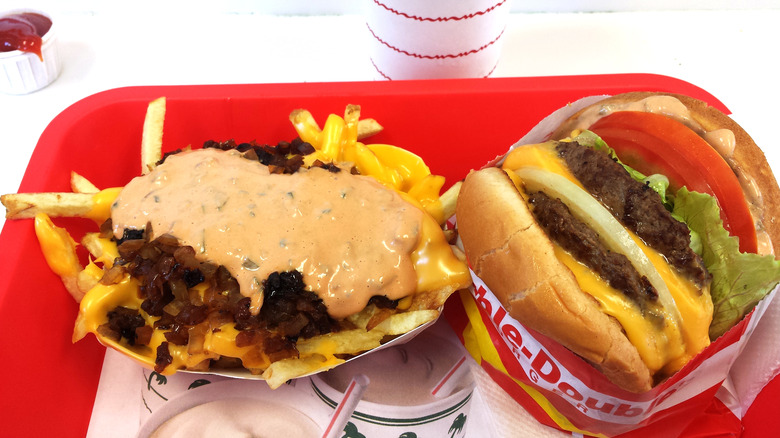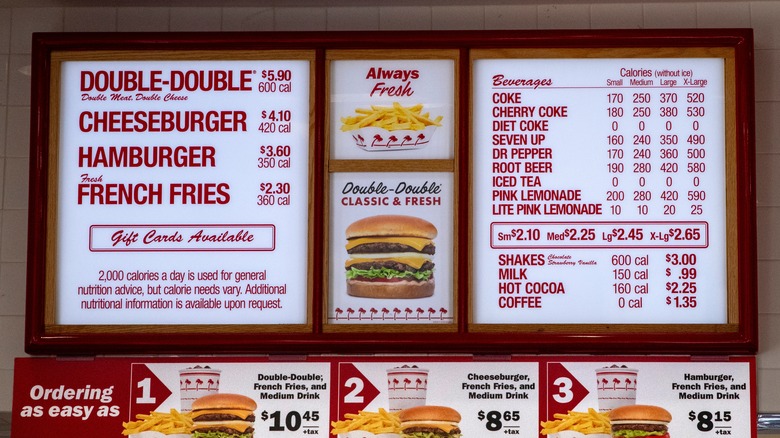The Reason Some People Avoid Eating In-N-Out Comes Down To Ethics
Let's be real: Many fast food chains have questionable ethics. Starbucks has repeatedly quashed employee attempts to unionize. Chick-fil-A, though known for high wages and employee perks, has a poor record when it comes to gay rights. In-N-Out may fly under the radar, but the chain has brought ire from activists and animal rights groups in the past. In 2012, In-N-Out was caught using beef from Central Valley Meat Company, a supplier accused of animal cruelty. The supplier's horrific treatment of its animals came to light after an animal rights group captured an undercover video at its facilities. The video showed cows being shocked and prodded until they could barely walk. Some cows were actually shocked and shot before being slaughtered.
According to CBS News, the USDA described conditions at the company, which supplied between 20% and 30% of In-N-Out's beef, as "egregious, inhumane handling and treatment of livestock." In-N-Out quickly severed ties with Central Valley Meat Company, and Chief Operating Officer Mark Taylor stated that the chain "would never condone the inhumane treatment of animals," adding that meat suppliers would need to adhere to the burger chain's cattle treatment standards.
However, the chain came under scrutiny again in 2018, when another animal rights group exposed inhumane conditions at its other suppliers, including Northern California's Ray-Mar Farms, as well as Harris Ranch. The companies, which also supplied Costco, were accused of extreme confinement and mistreatment of animals – practices that are illegal under California law.
In-N-Out's antibiotic-treated meat problem
We all know why animal cruelty is bad. But what's wrong with antibiotics? Well, the meat industry's use of antibiotics has dangerous consequences for human health. When you eat meat raised on antibiotics, you're not consuming significant amounts of drugs. The problem is that the meat industry's widespread use of antibiotics is creating drug-resistant superbugs, which find their way to humans through improperly-cooked meat or the environment. In 2016, In-N-Out committed to phasing out the use of antibiotics. Then, silence. Two years later, a report on antibiotic use in fast food restaurants called out the chain for failing to make progress. In 2020, In-N-Out released a statement reaffirming its commitment — but outed itself for failing to take action.
In-N-Out isn't the only chain that uses antibiotic-laden meat, though. In fact, only three major US chains make significant efforts to keep their meat antibiotic-free. Steak Shack and BurgerFi both avoid the use of antibiotics completely. Chipotle's meat is largely antibiotic-free, save for a small amount of its pork.
Other chains have also failed to deliver on their commitments. Like In-N-Out, McDonald's committed itself to ditching these drugs in its supply chain. But, while the initial 2018 announcement made big promises, its 2020 deadline came and went with few signs of progress. Chick-fil-A has walked back on its antibiotic promises, too. The lesson here? If you're a fast food fan, you'll have a tough time avoiding meat raised on antibiotics — but more power to you if you're able to.

